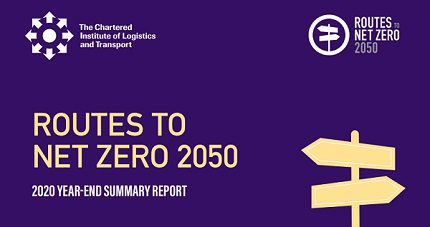- Taking an international leadership role in 2021 United Nations Climate Change Conference (COP26) and the G7
- Setting carbon budgets for the transport sector
- Mandating the use of sustainable fuel
- Continuing to incentivise the take-up of electric vehicles through grants and incentives
- Setting a clear, long-term policy that taxation will be aligned to decarbonisation, resource efficiency and levelling up, including the replacement of fuel duty and vehicle tax by road pricing, and a review of Air Passenger Duty
Local government is recommended to play its part by implementing policies in ways that suit their circumstances, including:
- Rolling out schemes for electric bikes
- Ensuring new developments include vehicle charging points
- Preparing active travel plans
Transport providers should implement decarbonisation schemes, some of which will require either direct government funding, support, or collaboration with industry, such as:
- Home delivery providers should move to all-electric fleets by 2030
- A rolling programme of rail electrification to enable the end of diesel-only traction by 2040
- A trial of electric aircraft on short domestic routes
- Campaigning to persuade people of the benefits of public transport
Industry and academia are the key players in research and development, and CILT’s recommendations for them are:
- Continue to develop innovative transport decarbonisation technologies, ranging from apps to massive industrial projects to produce hydrogen and sustainable fuels, and to remove greenhouse gases
- Ensuring that sufficient, affordable green electricity is available when and where it is needed
Paul Le Blond, chair, Aviation Policy Group, CILT(UK) and editor of CILT’s Route to Net-Zero 2050 Year-End Report, says: “The government and many others published some key documents in 2020 indicating the way forward, notably the Prime Minister’s Ten Point Plan for a Green Industrial Revolution, and this is expected to continue in 2021.
“All those within the profession have a key role to play in transport decarbonisation. We must spread the message that transport can achieve net zero by 2050 by a range of measures, some technological, some societal and some through policies.”
